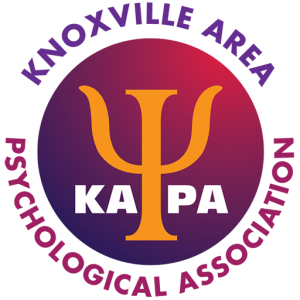
Upcoming Zoom
KAPA CE event
Adverse Childhood Experiences:
The importance of assessing and addressing trauma
Adverse childhood experiences - or ACEs - are potentially traumatic events that occur in childhood (0-17 years). This presentation will focus on the importance of universal screening for ACEs and best practices for addressing childhood trauma across clinical settings. Examples include experiencing violence, abuse, or neglect, witnessing violence in the home or community, or having a family member attempt or die by suicide. Also included are aspects of the child’s environment that can undermine their sense of safety, stability, and bonding, such as growing up in a household with substance misuse, mental health problems, or instability due to parental separation. ACEs are far more common than many people realize. About 6 in 10 adults surveyed have reported experiencing at least one ACE, and nearly 1 in 6 have reported experiencing 4 or more.
Presenter: Caleb Corwin, Ph.D.
Dr. Corwin is a clinical psychologist at the UT Graduate School of Medicine Center of Excellence for Children in State’s Custody. He received his doctoral degree from Louisiana State University, and completed postdoctoral training at the Kennedy Krieger Institute at Johns Hopkins University and at Cherokee Health Systems. Dr. Corwin now specializes in working with children and families and is currently working to help support dissemination of trauma informed evidence based care for children and families involved in the child welfare system.
Learning Objectives: 1) Identify 3 or more negative outcomes associated with exposure to adverse childhood experiences 2) Identify at least one benefit of screening for trauma disorders at intake 3) Identify at least one tool for assessing trauma in children and 4) Identify 5 different core elements of evidence based trauma informed care.
References:
Felitti, V.J., Anda, R.F., Nordenberg, D., Williamson, D.F., Spitz, A.M., Edwards, V., Koss, M.P., & Marks, J.S. (1998). Relationship of childhood abuse and household dysfunction to many of the leading causes of death in adults: The adverse childhood experiences study. American Journal of Preventive Medicine, 14(4), 245-258.
Melville, A., (2017). Adverse Childhood Experiences from Ages 0-2 and Young Adult Health: Implications for preventive screening and early intervention. Journal of Child and Adolescent Trauma, 10, 207-215. https://doi.org/10.1007/s40653-017-0161-0
Sachser, C., Berliner, L., Holt, T., Jensen, T.K., Jungbluth, N., Risch, E., Rosner, R., & Goldbeck, L. (2017). International development and psychometric properties of the Child and Adolescent Trauma Screen (CATS), Journal of Affective Disorders, 210, 189-195. https://doi.org/10.1016/j.jad.2016.12.040
Strand, V., Hansen, S., Courtney, D., (2013). Common Elements Across Evidence-Based Trauma Treatment: Discovery and implications. Advances in Social Work, 14, 334-354. https://doi.org/10.18060/3052
Thakur, N., Hessler, D., Koita, K., Ye, M., Benson, M., Gilgoff, R., Bucci, M., Long, D., & Burke Harris, N. (2020). Pediatrics adverse childhood experiences and related life events screener (PEARLS) and health in a safety-net practice. Child Abuse & Neglect, 108. https://doi.org/10.1016/j.chiabu.2020.104685
Target Audience: This program is open to all KAPA members and other interested mental health professionals who are not members. The content of this presentation is appropriate for mental health professionals educated at the graduate level in psychology, psychiatry, or other mental health related disciplines, as well as graduate students in a mental health related discipline.
